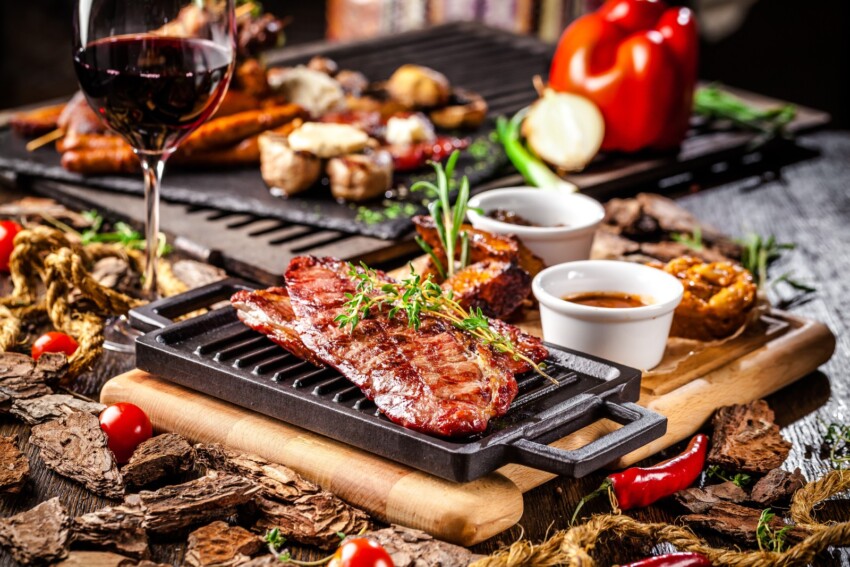

Dubai is a city of more than two million inhabitants, so it makes sense to assume that it is very easy to find food. Whether it is a luxury restaurant or a fast food restaurant of an international chain, the choice in Dubai is wide and complete, and will surely satisfy any food lover worthy of the name.
Most of the luxury restaurants in Dubai are located inside hotels.
There are all kinds of culinary offerings, but most of the gourmet restaurants promote cuisine derived from French, or at least European, cuisine with a hint of oriental-flavoured fusion.
Delicate foods juxtaposed with spices, and fresh, wholesome ingredients brought to Dubai from all over the world, make haute cuisine in this city a frontier to explore.
Those who cannot afford to spend hundreds of euros on dinner will certainly not be left empty-handed: food in Dubai can be found everywhere, especially inside the malls. In fact, each of them has an area or even an entire floor dedicated to food, which is called a food court.
A food court typically presents a series of restaurants or diners arranged next to each other to form a semicircle, in the centre of which are numerous tables that anyone serving themselves at one of these restaurants can use.
One can enjoy Chinese or Japanese, Middle Eastern or Thai, Italian or Turkish cuisine, but one can also find the most famous American fast food chains (Dubai in any case is a city child of globalisation).
The dishes are usually freshly prepared or ready-made, in any case the wait is minimal, the cost is decidedly low (a few dozen dirhams makes a full meal) and the quality is on average good. With such a wide choice of restaurants and cuisines, anyone will find something to eat to their liking in a food court.
A nice thing to do, especially if you are in a company, is to order several dishes from different restaurants of different cuisines, so that you can take a world tour of taste in a few minutes.
The most popular foods prepared in food courts are fried rice, chicken soup and spring rolls for Chinese cuisine, pad thai and curry for Thai cuisine, the ever-present pizza for Italian cuisine, and kebabs in all their forms: shawarma in Arabic cuisine, gyros in Greek cuisine and kebabs in Turkish cuisine.
For Japanese cuisine, chicken teriyaki is a big hit, even more so than sushi, while the Indian dish that is most popular in food courts is chicken tikka masala, a typical Scottish dish (it originated in Scotland by Indian emigrants to adapt to local tastes and has since spread like wildfire all over the world).
Ethnic cuisine in Dubai refers to non-Arab and non-Middle Eastern cuisines. However, given the predominance of Indians among the resident population, it will be very easy to come across one of these restaurants, especially if you are staying in the Deira area, where much of Dubai’s working class lives.
Most of them are rather sloppy in the manners of the waiters and the décor, but the food that is prepared is really fresh and wholesome and, above all, really reasonably priced, and don’t worry about the quality of the ingredients, there is a body in Dubai that oversees hygiene.
Keep in mind, however, that being real Indian food prepared for real Indians, the flavours will be much stronger, spicier and spicier than those you can try in Indian restaurants elsewhere in the world.
City Card allow you to save on public transport and / or on the entrances to the main tourist attractions.


